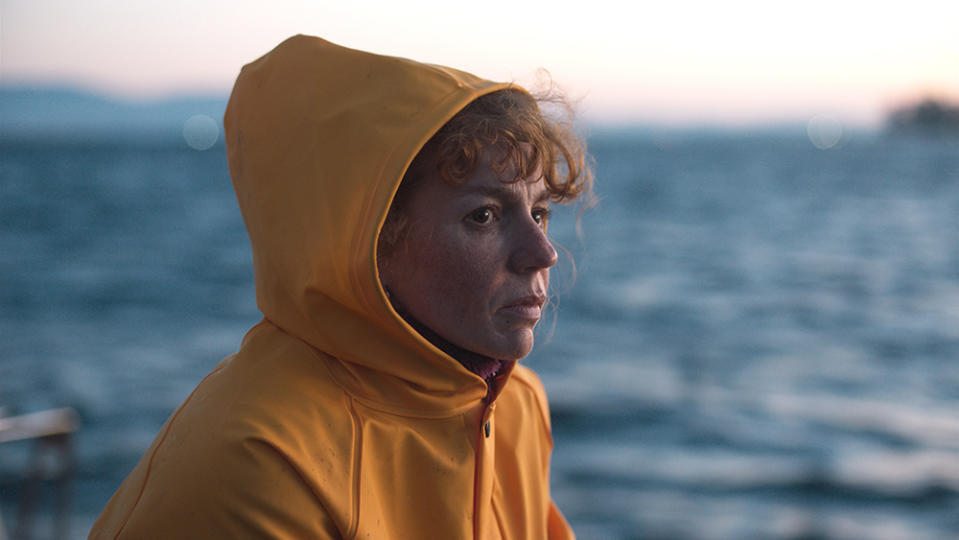From Netflix to ’20,000 Species’ and Other Highlights, 10 Takes on Málaga’s Super-Sized Mafiz, Spanish Screenings

Running March 13-17, the Málaga Festival’s Mafiz-Spanish Screenings Content weigh in this year as one of the biggest dedicated Spanish movie platforms in history, boasting also a strong line in Latin American arthouse projects and productions. 10 Takes as the event kicks off, blessed by early Spring sunshine, in the Andalusian city:
XXXL
More from Variety
In 2022, super-sized by the Spanish Screenings Content, part of Spain’s €1.6 billion ($1.7 billion) AVS Spain Hub, a vibrant Mafiz, the Malaga Film Festival industry area, fair exploded, delivering a sterling confirmation of Spain’s build as a fiction force in a platform age, aided by robust state sector backing. This year, Mafiz looks even larger. At 1,560 delegates and counting as of March 6, Mafiz is tracking to pass 2022’s final attendance figure of around 1,600, Juan Antonio Vigar, Málaga Festival director told Variety. Participants come from 62 countries, up from 53 last year. “The event’s consolidation is clear,” Vigar added. “It makes us feel that the work we do is useful for the sector,” he adds.
Spain’s Surge
Reasons for Malaga’s surge cut various ways. For decades a peripheral power in international market terms, in an OTT age Spain is now a player. Spain has more shows and movies in Netflix’s all time non-English global Top 10s than any other country in the world, seven to France’s two, for example.“Thanks above all to Netflix, Spanish series are a brand. That helps Spanish cinema,” says Film Factory’s Vicente Canales. Spain’s central and regional governments have taken notice, prioritizing the sector. Backed by a broad governmental alliance of entities, the Spanish Screenings have also powered up its Animation Day, showcasing five of Spain’s biggest toon titles, and launched a Málaga Short Corner.
New Spanish Cinema Banner Titles
A “gentle, humane Spanish drama,” Variety wrote of Estibaliz Urresola’s “20,000 Species of Bees,” a Berlin best performance winner for Sofia Otero, which weighs into Málaga as the big competition frontrunner. Further Berlin titles also at Málaga, Alvaro Gago’s “Matria” and Carla Subirana’s “Sica,” weigh in, like Berlin’s 2022 Golden Bear winner “Alcarràs,” as dramas with a memorable sense of place whose urgent bigger issues – women’s sexual diversity, the destruction of traditional industry, women’s independence – are rarely strident. It is this kind of cinema which many young filmmakers in Spain now want to create and are able to make thanks to selective aid incentives and pan-regional co-production. And festivals at home and abroad are embracing their output.

Netflix: Another Groundbreaking Initiative
“Netflix is the biggest-builder of cross-European culture in the E.U.,” Reed Hastings said last week in Amsterdam. Basically, he’s dead right. In another worthy cause, on Wednesday, the U.S. streaming giant will unveil the eight winning projects of the second edition of competition “Cuéntanos las histories que nadie nos cuenta,” a drive into diversity headed by Spanish rights body DAMA and Netflix. All winners get €6,000 ($6,420) for further development. Two get to cut a teaser. Bravo.
Spain’s Big Shoot Locale
This January, Spain staged an incentives revolution. Under new regulations, tax relief for TV shows shooting on the mainland skyrocketed to a maximum €10 million ($10.8 million) per TV episode, with a cap of €18 million ($19.4 million) per single episode shot in the Canary Islands. Fiscal deductions are levelled at 25%-30% of investment or spend on the Spanish mainland, 54%-45% in the Canaries. These are extraordinary breaks which stand comparison with any part of Europe. A Spain Film Commission double-backed presentation on Wednesday will present the incentives and may suggest some early reactions, plus sustainability measures in Spain and Europe.
And Yet…
And yet: the same factor which explains Spain’s surge as film-TV power, the streaming revolution, also presents the biggest challenge for much of Spanish cinema. As their subscriber base worldwide grows to tens of millions in single territories and hundreds of million worldwide, global streamers have reached out naturally enough to their audiences with ever broader audience plays. Established pay TV and free-to-air players have fought back, following suit. Accelerated by COVID-19, theatrical distribution for most indie titles, but especially art house pics, has withered.“There’s been a ‘streamersization’ of buyers’ taste, as somebody said,” says a Spanish producer. “There’s a demand for new stories, new characters that probably years ago would have been much more difficult to sell,” says Filmax’s Iván Díaz instancing interest in Sundance player “Mamacruz,” about an older woman’s sexual awakening. The big question, however, is how many upscale arthouse dramas – which include many of the best films being made in Spain – sales agents can persuade buyers to take, and at what price.
Which is Where the Screenings Come Into Play
The only chance most art-house dramas and their talents have these days to break out abroad is first to break out at festivals. Pushed forward to mid-March, Málaga now plays off a fruitful axis: Berlin-Malaga, showcasing a second time round the biggest Spanish titles at the Berlinale. “I remember a distributor telling me: ‘I see things at Berlin but I close them at Malaga,’” says Vigar. “At Malaga, I will be talking to buyers that I’d be hard put to see at Berlin or Cannes and that’s great,“ agrees Latido Films’ Antonio Saura.
Buzz Titles
Many of the best-selling prospects at Malaga this year are either open arthouse – Latido’s “Bajo Terapia” – or thrillers – Charades’ “Upon Entry,” Filmax’s “Girl, Unknown” – or, at the Market Screenings, genre – Film Factory’s creepy urban legend “The Communion Girl,” and “The Cuckoo’s Curse,” a new horror-thriller directed by The Orphanage” producer Mar Targarona – or comedy: Film Factory’s historical LGBT+ laffer “Love & Revolution,” Filmax’s male insecurity tale “Co-Husbands,” with “House of Flowers’” Paco Leon; and Latido’s “The Kids Are Alright 2,” directed by Santiago Segura, one of the biggest comedic forces in the Spanish-speaking world.

A Massive New Talent Platform
“Malaga has many virtues. It shows the best of Ibero-American movies, bets on cinema in the broadest of terms, but if it has a hallmark, it’s its bet on new or emerging talent,” says Vigar, noting the festival’s Spanish premieres and top awards for the feature debuts of Rodrigo Sorogoyen (“Stockholm,” 2013), Carlos Marques-Marcet (“10.000 km,” 2014), Carla Simón (“Summer 1993,” 2017), and, last year, Alauda Ruiz de Azúa (“Lullaby”). Shorts Corner, a fully-fleshed out program of 58 short screenings, round tables and presentations, running March 13-16, reenforces all the more this identity.
Animation Day
One of Malaga’s biggest industry plays: “We want to offer a bigger quantity, always looking for the maximum quality,”says Vigar. This year, at a Tuesday two-hour showcase, the Animation Day will unveil five of the highest-profile in-the-pipeline titles which underscore Spanish animation’s range and ambitions, from Ancient China epic “Dragonkeeper” to “Sultana’s Dream” from the producers of “The Unicorn Wars.” Once a occasional departure, animation is now one of the Spanish film industry’s most major attractions.
Best of Variety
Final Oscars Predictions: Animated Short - Will the Academy Go for 'The Boy' or 'Dicks?'
Final Oscar Predictions: Documentary Short - Will the Academy Go for Malala or 'Elephants?'
Sign up for Variety’s Newsletter. For the latest news, follow us on Facebook, Twitter, and Instagram.

